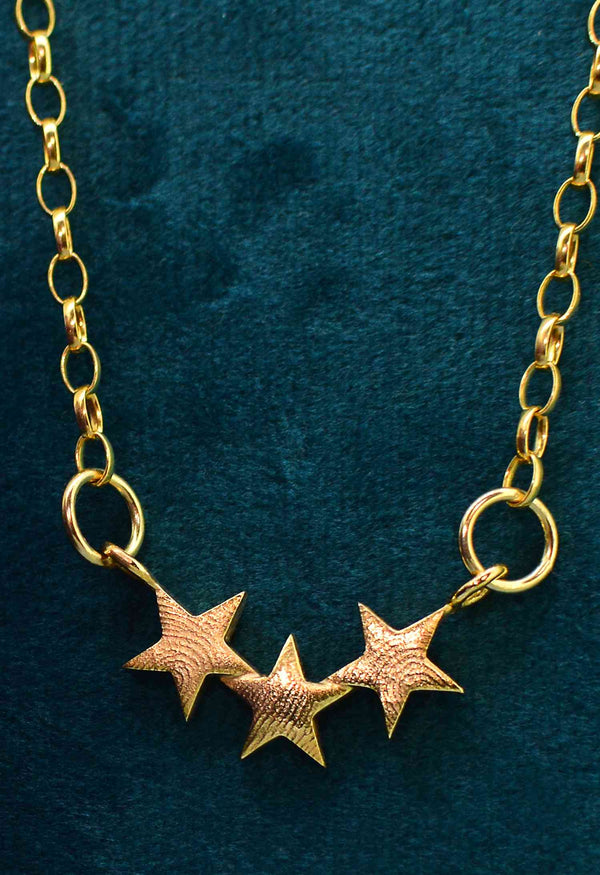Your Cart is Empty
~ Waiting List in Operation ~ Please Ask Before Ordering ~
~ Personalised jewellery to treasure forever ~
~ Waiting List in Operation ~ Please Ask Before Ordering ~
~ Personalised jewellery to treasure forever ~

Why Do We Wish?
March 11, 2022 6 min read
Have you ever wondered where the idea of making wishes comes from?
After all, we make wishes all the time.
Depending on how traditional (or superstitious) you are, at some point in your life, I’m going to hazard a guess and say you’ve made wishes on birthday candles, dandelion heads, shooting stars, Christmas turkey wishbones – even eyelashes.
Come on, how many of you have dropped a penny into a wishing well or scribbled a wish to a newborn baby in a gift card (Thanks Disney)? We all do it!
Wishes are personal, meaningful and often secret, but why do we wish? Why the big secret? And where does the whole tradition come from?
Why do People wish?
Wishing is a tradition, even though you’ve probably never thought that way about it before.
We learn to wish from our parents and older family members who, in turn, learned their own unique way of wishing from their parents and generations that came before them.
Like all traditions, the way we wish is changed and tweaked as the years pass by and every family will do things a little differently, but ask anyone! Fundamentally our wishes are all variations of the same thing.
The very first examples of people making wishes can be found way back in Ancient Greece where candles were blown out from birthday cakes and wishes were to the Goddess of the Moon, so it’s definitely not a new thing!
But why have we all continued with this seemingly silly superstition after centuries of doing so? Especially when, 9 times out of 10, wishes never actually seem to come true.
Well, there are a few reasons for that.
Sometimes wishes are just fanciful. Our wishes reflect our dreams for the future. Things we’d love to do, or own or achieve.
Sometimes these things are achievable but other times not. We wish for self-improvement or to achieve our goals. We wish we could own that £5 million house we drive past on the school run every day. We wish we could win the lottery.
Other times, our wishes are sweet sentiments. We wish our children happy dreams as we kiss them goodnight. We wish happiness and health to new babies. We encourage our children to be excited by wishes because it adds magic and fun to their childhoods.
We give them pennies to drop into wishing wells and put candles on top of their birthday cakes.
“Close your eyes tight and wish for what you want more than anything in the whole world”.
Then there are the more serious and personal kind of wishes. When wish for the seemingly impossible. Things like desperately needed new jobs, true love, friends and good health.
The kind of wishes where somewhere deep inside we believe or hope that *something* out there in the universe might be listening that might be able to answer.
So, what are the most common wishes?
There are some things that are wished for more than anything else. Most commonly, people wish for wealth, success, self-improvement, love, health, happiness and friends.
There are also several things that people seem to wish *on* more than anything else.
And this is where it gets strange!
People really do wish on the strangest, most nonsensical things, including:
Eyelashes, wishbones from chickens and Christmas turkeys, birthday candles, pennies, feathers, those white horse waves that you see on the edge of the beach, shooting stars, first stars, rainbows, wishing wells, dandelion clocks, the moon – even ladybugs.
It really is a random list, but why do we wish on all these weird and wonderful things?
Why do we wish on stars?
It’s a dark, still, cloudless night. You look up into the peaceful, blackened sky above and spot the first star, or the North Star or a shooting star. There’s a prickly magical feeling in the air - and you make a wish.
But why?
As a child of the 80’s I grew up firmly believing that this had been wholly invented by Jiminy Cricket of Pinocchio fame, but no….. this idea is a really ancient one.
The idea of wishing on a shooting star or the first star of the night originated way back in ancient Greece. Astronomers at the time believes that stars and the constellations had been placed into the sky by the Gods. Some of these stars were fixed in place, while others were wandering.
As many of the star constellations looked like recognisable animals, people and everyday objects, some people believed they had been placed there to teach the people on earth lessons about how to live good lives.
Other people believed that they acted almost like windows, so that the Gods in the heavens above could look down on the earth below.
Now, if you were an average ancient Greek person, when would be the very best time to make a wish to the Gods?
That’s right! When they were actually looking right at you.
Now of course, through the ages and around the world, ideas about stars have changed.
Ancient Christians believed that stars were angels or souls escaping up to heaven, while others believe that when a child is born, a new star appears in the sky.
The one idea that has persisted to this day is the idea that stars are somehow magical. That the first star seen in the sky each night possesses magical powers and the ability to grant our deepest wishes.
“Star light, star bright, first star I see tonight. I wish I may, I wish I might, have the wish I wish tonight”.
Why do we wish on eyelashes?
Most of us have done this at some point in our lives. See a stray eyelash on your cheek, take it off, place it on the back of your hand, blow it away and make a wish.
But why?
Well, back in the 18th and 9th century, Folklore said that the devil loved nothing better than to collect human hair so he could have power over whoever lost it.
The idea of blowing hairs and eyelashes away or throwing them over your shoulder (as quickly as possible) was that the devil would clear off and leave you alone.
Instead, blowing the eyelashes away allowed the owner to wish for whatever their heart desired but, if the eyelash got stuck anywhere and refused to be blown away, the wish would fail to come true.
Why do we wish on dandelions?
I’ve taken many enchanting videos of my kids blowing dandelion wishes over the years.
Excitedly hunting for dandelion clocks on long, hot, summer walks. Blowing away the fluffy seeds and watching them dance away like fairies on the breeze.
But why are dandelions used for wishes?
Dandelions are one of the most superstitious flowers going. Over the centuries, people have believed they can predict the future, predict the weather, grant wishes, tell the time, tell you if you’re loved, tell you how many children you will have…… the list goes on and on.
See? Not just a yellow weed!
But where the whole idea originated from is a bit of a mystery – possibly because they’ve been around for so long. 30 million years to be exact.
For centuries they were used for food and medicine because alongside being pretty nutritious (they’re absolutely chock-full of fibre and anti-oxidants), they’re actually really beneficial for digestion, heart health, liver health, regulating blood sugar and more.
In Medieval times, they were held under the chins of children to predict whether they would be rich when they grew up and the Victorians believed they symbolised love.
The truth to this one is that nobody really know where the idea came from. Folklore seems to have sprung up around them because, well, they spring up absolutely everywhere and people really liked them! They’re like happy little yellow balls of sunshine.
Why do we give wishes to babies?
This one is curious because as a wishing tradition, it’s not actually as ancient an idea as most of these others.
The idea of gifting wishes to newborn babies originally came from…… the story of Sleeping Beauty. Now, Disney can’t actually take credit for this, despite those cute fairy God Mothers.
The earliest known version of Sleeping Beauty was a narrative called Perceforest that was written sometime around the year 1330, but it was first written and published as a real fairytale story by a man called Giambattista Basile in Italy during the Early Modern Era - And Flora, Fauna and Merryweather didn’t make an appearance at all.
Instead, seven fairies were chosen to be Godmother’s to a baby princess called Thalia and each of them gifted her a wish. Their gifts included wishes for grace, kindness, beauty, intelligence, dance and song.
Then, an 8th fairy crashes the Christening and feeling insulted because she hadn’t been invited, she gifts a curse to the baby princess instead of a wish saying that the child will prick her finger on the spindle of a spinning wheel before her 18th birthday and die.
To counter the curse, the 6th and last good fairy uses her wish to try to reverse the evil - cementing the whole concept of the power of wishes.
Leave a comment
Comments will be approved before showing up.
Subscribe
Sign up to get the latest on sales, new releases and more …

Join the Club
WE'RE SO PLEASED TO SEE YOU!
Stay a while and look around.
While you're here, why not subscribe to our newsletter?We'll give you £20 off your first order, VIP access to new products, and access to our very special sample sales.We promise not to annoy you (honest).
